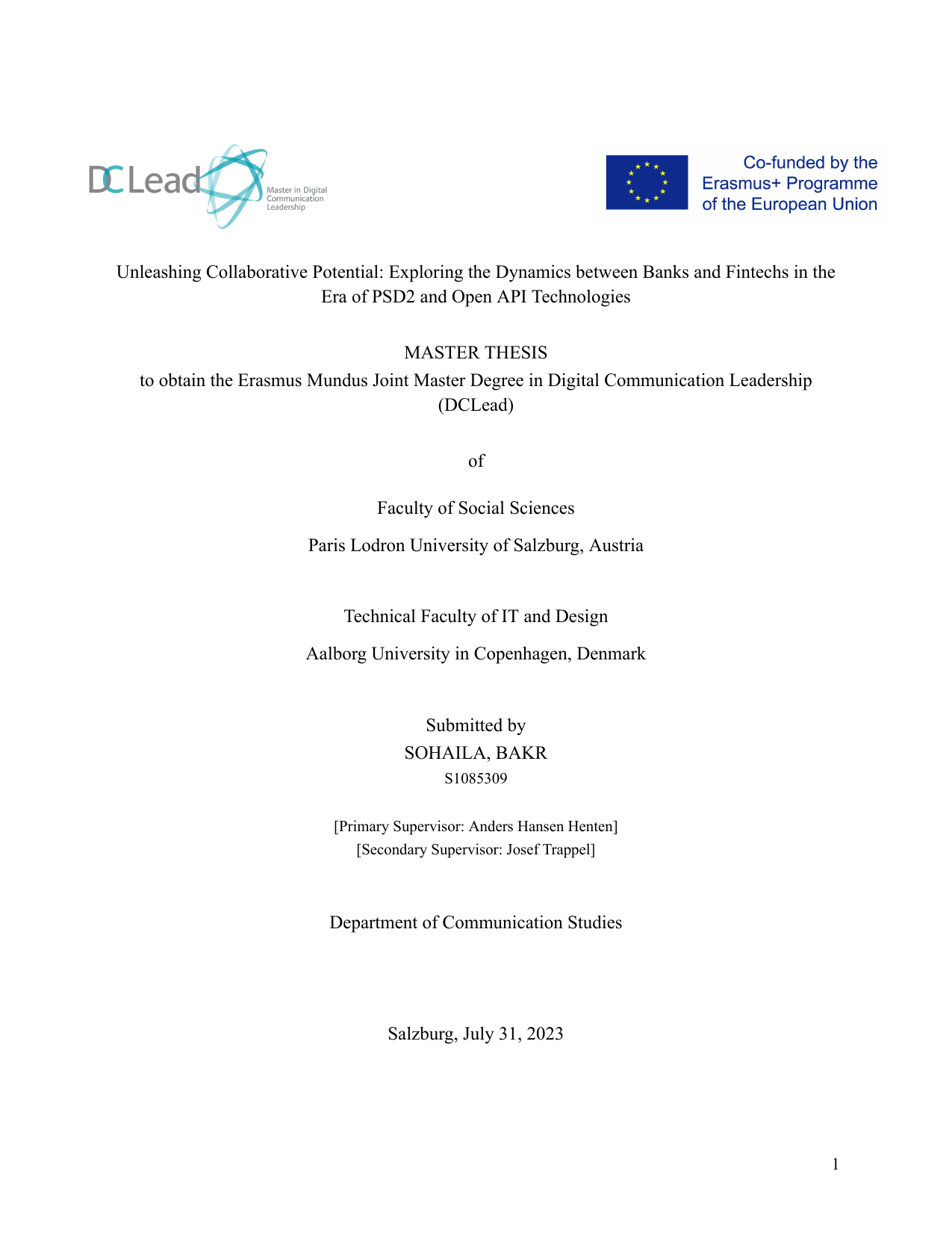
Unleashing Collaborative Potential: Exploring the Dynamics between Banks and Fintechs in the Era of PSD2 and Open API Technologies
Term
4. Semester
Publication year
2023
Submitted on
2023-07-30
Pages
138
Abstract
The banking industry landscape is experiencing significant changes due to the emergence of fintechs, which offer innovative banking services that challenge traditional banks' market dominance. In response to these industry shifts, both banks and fintechs have embraced open banking. The fear of market loss and control has led traditional banks to adapt to this shift, while the desire to scale has motivated fintechs to participate in open banking collaboration. This study examines the transformation of the relationship between traditional banks and fintechs from rivals to collaborators through open banking; and explores the impact and implications of this collaboration on the banking industry. Using the Multi-Level Perspective framework, the research examines the technical and social aspects of the transition in the banking sector. At the regime level, traditional banks represent the dominant system, while fintechs constitute the niche level with their emerging innovations. The study adopts a qualitative approach, using semi-structured interviews as primary data, and incorporates secondary data from external sources to provide a comprehensive understanding and validation of the primary findings. The findings reveal that open banking collaboration is driven by factors including data access, regulatory expertise, and modern technologies that facilitate collaboration between banks and fintechs. Further, the research concluded that open banking collaborations benefit all parties involved. Banks gain access to fintech technologies and enhance operational efficiency and user experience. Fintechs scale their operations and leverage banking infrastructure to reach a broader audience. Moreover, consumers benefit from more cost-efficient and inclusive financial services and better agency over their financial data. The research highlights the importance of regulations, specifically PSD2, in fostering and securing collaboration between banks and fintechs. These regulations create an environment of trust and encourage the adoption of open APIs for secure data sharing. Open banking also enables advanced data analytics techniques and the integration of modern technologies like machine learning, enhancing banking operations, fraud detection, and customer experiences. However, challenges and risks need to be addressed. Banks should proactively develop strategies to cope with the evolving landscape without falling behind, and fintechs should balance their growth to maintain collaborative partnerships. Consumer awareness and understanding of open banking are essential to ensure widespread adoption.
Keywords
Fintech ; Open banking ; Open APIs ; PSD2
Documents
